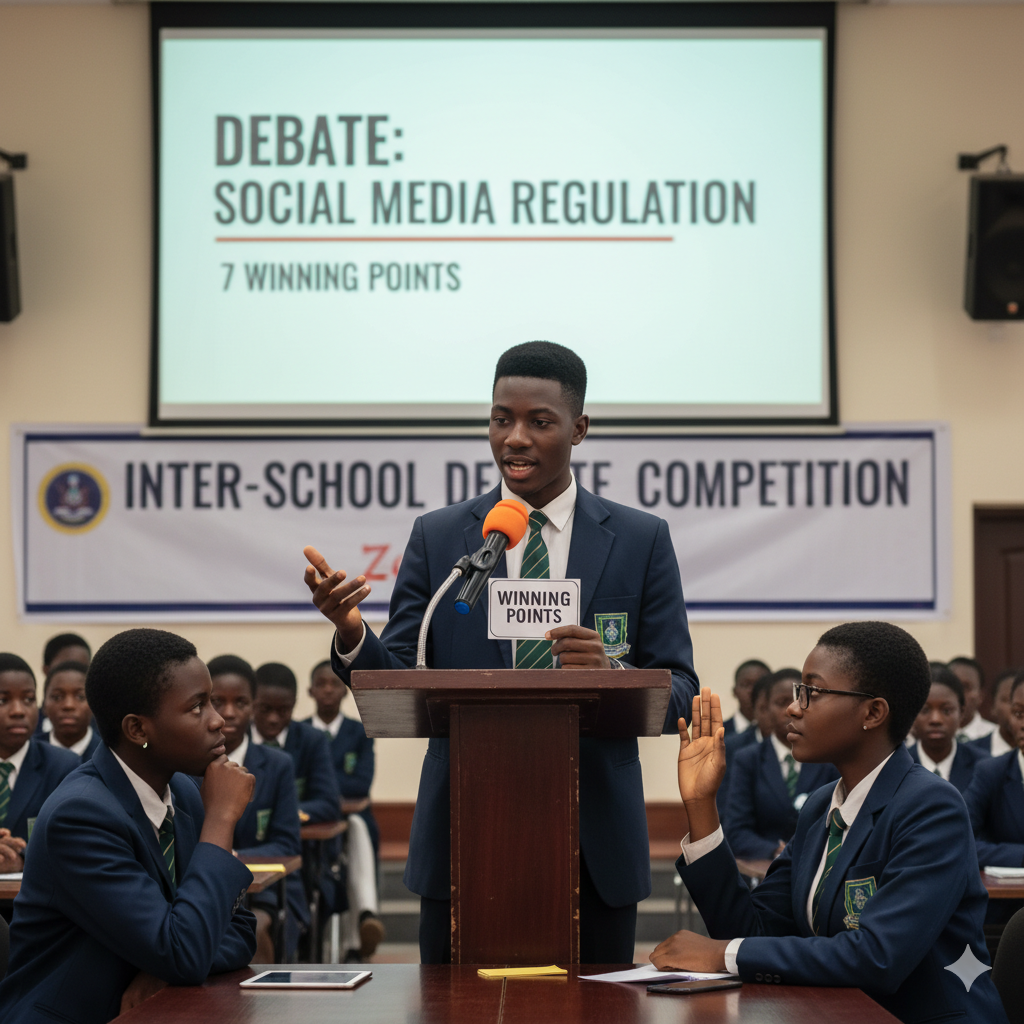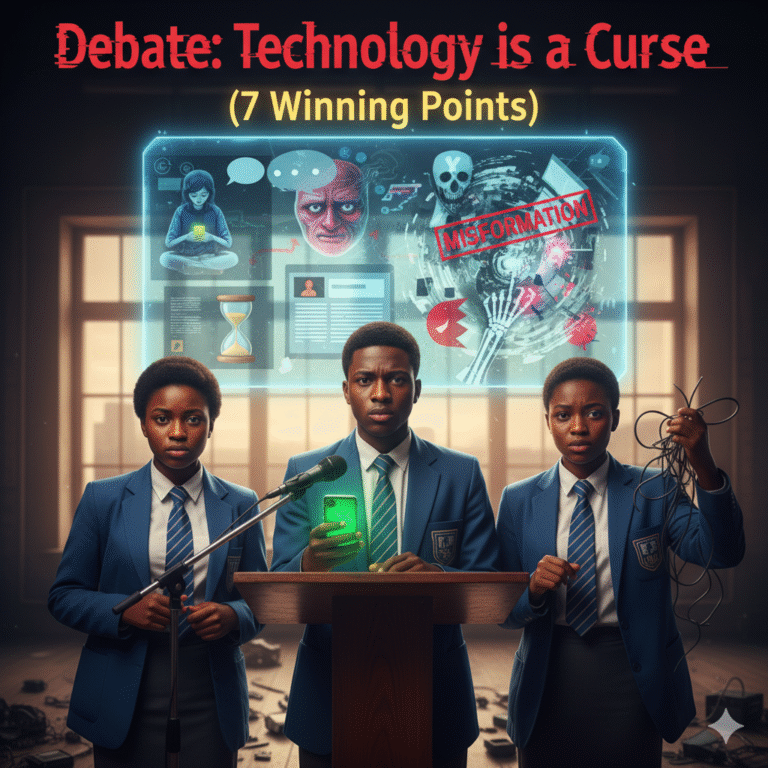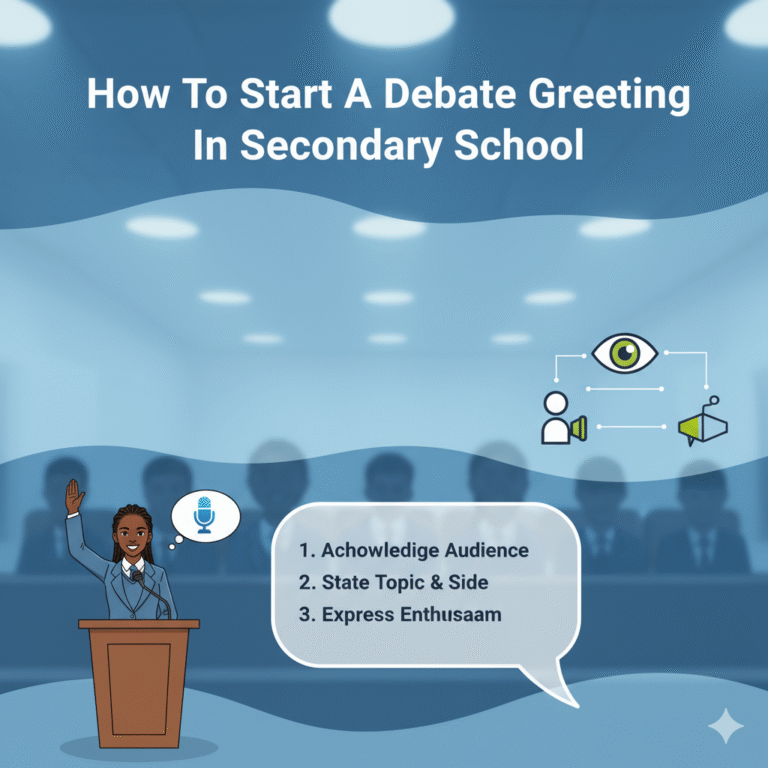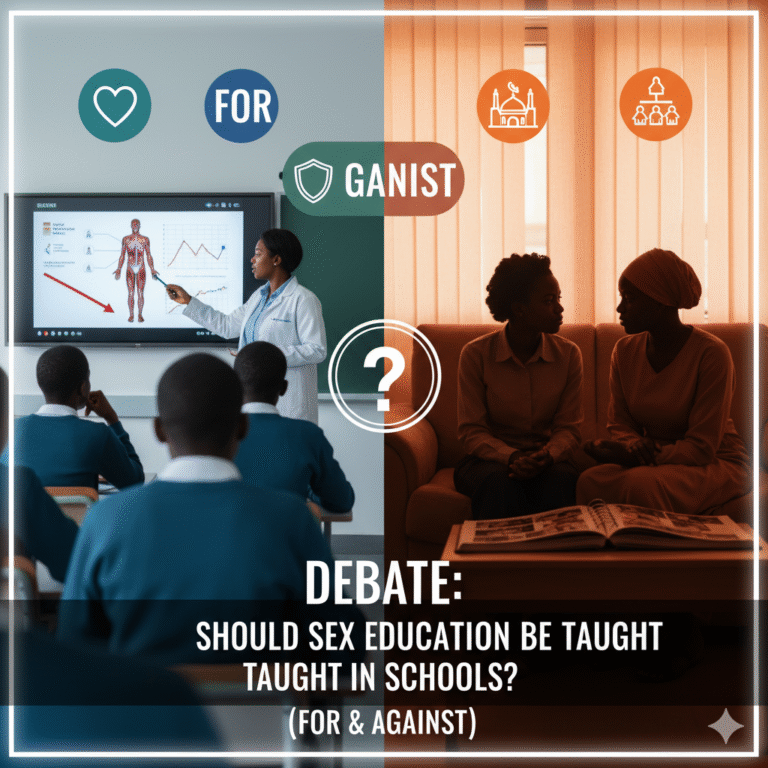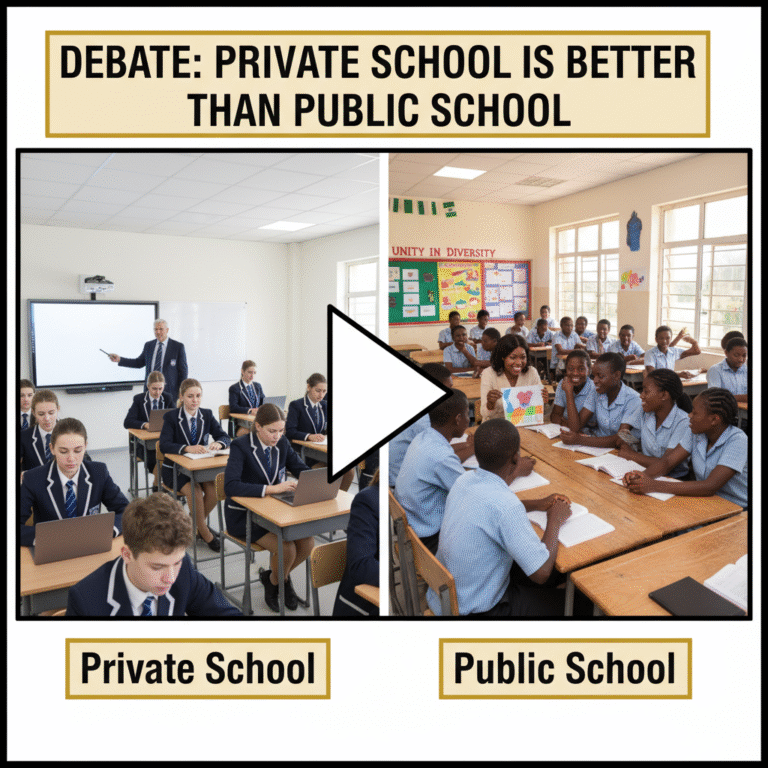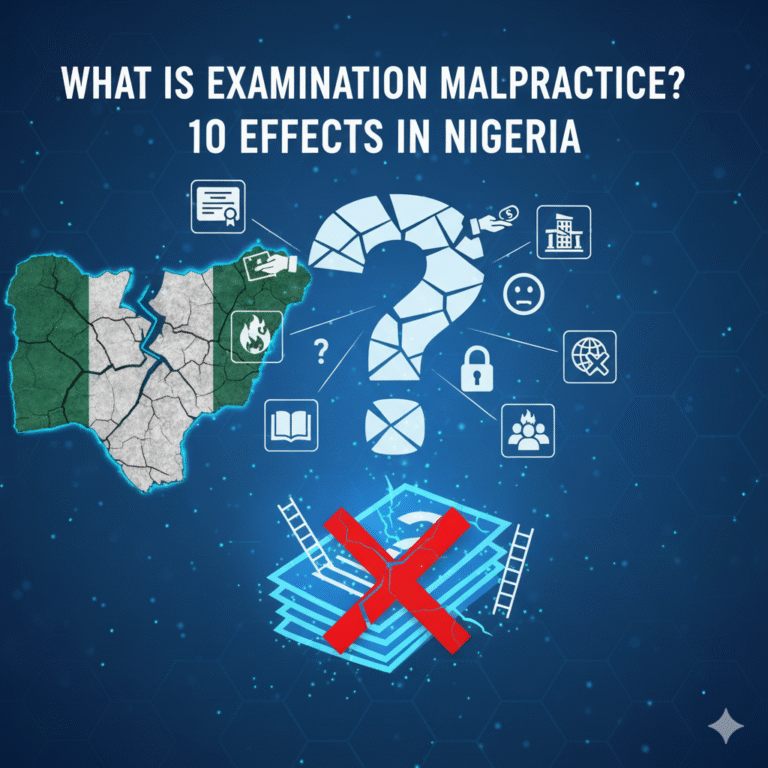Debate: Social Media Should Be Regulated by the Government (7 Winning Points)
Debate: Social Media Should Be Regulated by the Government (7 Winning Points)
Looking for the winning points for your next debate? You’ve come to the right place. Today, we are tackling a very hot topic: the motion supporting that ‘social media should be regulated by the government’.
If you are arguing for this motion, this debate on social media should be regulated by the government can be a tough one, but I’ll provide the strongest arguments to help you win.
First, let’s be clear on the terms. “Social media” means platforms like Facebook, X (formerly Twitter), TikTok, and Instagram. “Regulation” simply means the government setting rules and laws for how these platforms must operate to protect citizens.
Disclaimer: This article provides arguments for one side of an educational debate. The goal is to help you build a strong case. It is not meant to diminish the very important arguments for free speech, which your opponents will (and should) raise.
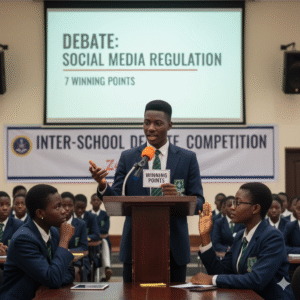
Winning Debate Points on Why Social Media Should Be Regulated
1. To Stop the Spread of Fake News and Misinformation
Good day, Mr. Chairman, Panel of Judges, accurate time-keeper, and my co-debaters. My first and most important point is that without regulation, fake news spreads faster than truth.
We have all seen it in Nigeria. False information on WhatsApp or Facebook—like fake health “cures” or false news about a crisis—can cause real-world panic, violence, and permanent damage to people’s reputations.
The truth is, these companies want content to go viral, even if it’s a lie, because it brings them more money from adverts. Government regulation can create a system of platform accountability, forcing these companies to act faster and more responsibly to stop these lies before they destroy our communities.
2. To Protect Our Children and Teenagers
My second point is about the safety of our children. Right now, our young brothers and sisters are exposed to so much harmful content. This includes graphic violence, pornography, and intense cyberbullying that follows them from school right into their bedrooms.
These platforms are simply not doing enough to protect them. Their age-verification systems are weak, and their content moderation is too slow. The government has a fundamental duty to step in and protect its most vulnerable citizens.
In fact, this is a global concern. The United Nations highlights that cyberbullying and exposure to violent content are serious, worldwide risks for young people online. Regulation is not about censorship; it’s about child safety.
3. To Fight Against Divisive Hate Speech
Think about it. How many times have we scrolled online and seen posts that are clearly trying to divide us?
Hate speech that targets people based on their tribe, religion, or ethnicity is poison to our national unity. In a diverse country like Nigeria, these words are not just “opinions”—they are dangerous. These platforms’ algorithms sometimes even promote this anger because it gets more clicks and engagement.
A regulated environment would have clear, strong penalties for any platform that allows this kind of dangerous content to fester and spread. This is a matter of national security.
4. To Safeguard National Security and Public Order
Leading from my last point, social media is, unfortunately, now a tool used by criminals, insurgents, and terrorists to organize and spread fear. This is not a theory; it is a fact.
They use these “ungoverned” digital spaces to plan activities, recruit new members, and spread propaganda that threatens the stability of our entire nation.
No responsible government in the world would allow this to happen without any oversight. Regulating these platforms is a key and necessary part of modern national security and maintaining public order.
5. To Hold Big Tech Companies Accountable
But here’s the thing: who are these companies? Many of them are foreign businesses making billions of Naira from Nigerians, but they often refuse to follow our local laws or respect our customs.
When a problem happens—when a Nigerian’s reputation is destroyed or a business is defrauded—who do you report to? These companies often have no functional office here and no real person to hold responsible.
This debate on social media should be regulated by the government is also about fairness. Regulation would force these companies to have a real, legal presence in Nigeria, pay their fair share of taxes, and answer for the harm caused on their platforms.
6. To Protect the Data Privacy of Citizens
Another key point is our data privacy. These social media companies are data-gathering machines. They are not free. We pay for them with our personal information.
They collect everything about us—where we go, what we like, who we talk to—and sell this data protection to advertisers. We have no real control. Government regulation can enforce strict data protection laws, giving Nigerians back the power over their own personal information.
7. Regulation is a Global and National Best Practice
My opponents will stand here and shout “Free Speech!” But they are mistaken. Is “free speech” the freedom to shout ‘Fire!’ in a crowded market just to cause a stampede? No. Freedom always comes with responsibility.
We are not even suggesting a new idea. The Nigerian government itself, through NITDA (National Information Technology Development Agency), has already published a Code of Practice for Internet Platforms to begin this exact process.
Furthermore, countries in the European Union (with their Digital Services Act), the UK, and Australia are all implementing similar regulations. It is not a radical idea; it is the responsible, modern, and standard thing to do.
Frequently Asked Questions (FAQs)
What is the strongest argument against regulating social media? The main argument you will hear is that it is a threat to “freedom of speech” and that it could be used by the government to silence critics. The best way to respond is to agree that free speech is vital, but to state that this freedom is not absolute. It does not include the freedom to defame others, spread lies that cause violence (misinformation), or exploit children. Good regulation targets verifiable harm and illegal actions, not just opinions.
How do you conclude a debate on this topic? You should summarize your main points: “In conclusion, we are not arguing for censorship, we are arguing for safety. Because regulation is the only way to tackle fake news, protect our children from harmful content, stop hate speech, and hold these powerful tech companies accountable, I urge you all to support this motion.”
Conclusion / Summary
So, to summarize my points, we are supporting this motion because regulation is essential to stop the spread of dangerous misinformation, protect our children from exploitation, reduce the poison of hate speech, protect our national security, and finally hold these big tech companies accountable to the Nigerian people.
Final Disclaimer: Remember, this is a debate. The goal of the opposing side is not wrong—free speech is a cornerstone of democracy. These points are provided solely to help you build a strong, persuasive argument for this educational exercise.
What do you think? Do you agree? Drop your own opinions or points in the comments section below.
Also, feel free to share this post with your coursemates or anyone in your debate team! Good luck.

